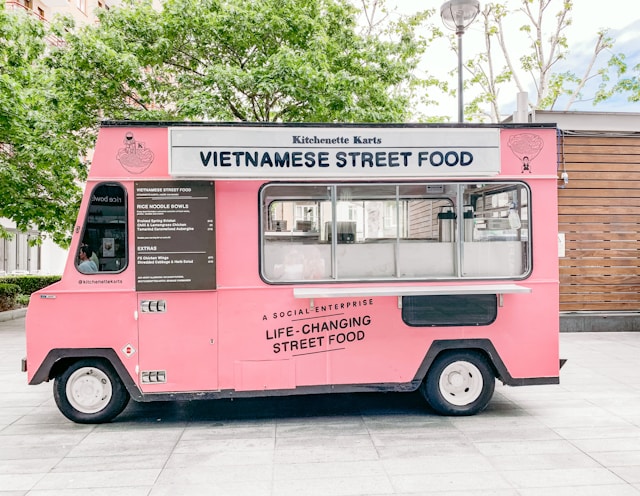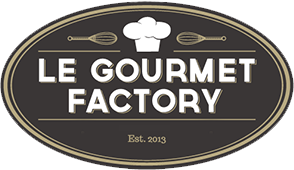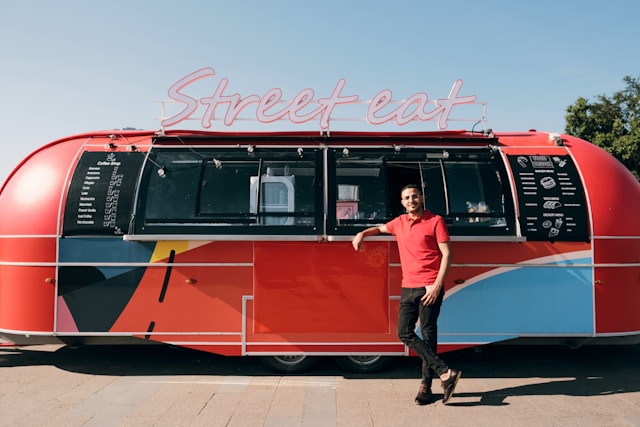Food Trucks: A Thriving Opportunity for Modern Entrepreneurs
Discover the essentials of the food truck business, from market relevance to success tips. Explore its potential in today’s thriving culinary industry.

Continue exploring the next articles in this series:
Start your food truck business with confidence. Learn the essential steps, from planning and funding to branding and launching successfully.
01: Introduction
The food truck business has revolutionized the culinary world, providing a dynamic and accessible way for aspiring entrepreneurs to enter the food industry. In today’s fast-paced society, food trucks cater to customers seeking convenience, diversity, and unique culinary experiences. From bustling urban areas to local community events, food trucks have become an integral part of the modern dining landscape. This article explores the fundamentals of the food truck business, its market significance, and why it has become an attractive venture for entrepreneurs.
02: Understanding the Food Truck Business
What is a Food Truck Business?
A food truck business operates out of a mobile vehicle equipped with a kitchen to prepare and serve food. Unlike traditional restaurants, food trucks bring the food directly to the customer, often parking in high-traffic areas, festivals, and business districts. This mobility enables food truck owners to adapt quickly to changing customer preferences and market demands.
A Rapidly Growing Industry
The food truck industry has seen exponential growth over the past decade. According to industry reports, the U.S. food truck market is projected to reach $1.4 billion by 2028, growing at a compound annual growth rate (CAGR) of 6.8%. This growth is driven by changing consumer lifestyles, increased interest in diverse cuisines, and the affordability of food truck operations compared to traditional restaurants.
Importance in Today’s Market
Food trucks hold a unique position in the food industry, bridging the gap between fast food and gourmet dining. Their ability to offer high-quality, freshly prepared meals at reasonable prices has made them a favorite among millennials and Gen Z consumers. Additionally, food trucks often serve as a launchpad for culinary entrepreneurs to test innovative concepts before transitioning to brick-and-mortar establishments.
03: Benefits of Starting a Food Truck Business
Low Startup Costs
Starting a food truck business typically requires less capital compared to opening a restaurant. Entrepreneurs can expect to spend between $50,000 and $200,000 on a fully equipped truck, depending on the equipment and customization needed. This affordability lowers the barrier to entry for aspiring business owners.
Flexibility and Mobility
One of the biggest advantages of food trucks is their mobility. Owners can move to different locations, targeting events, festivals, or busy neighborhoods to maximize profits. This flexibility allows food truck businesses to adapt to customer demand, weather conditions, and seasonal trends.
Platform for Creativity
Food trucks offer unparalleled creative freedom, allowing entrepreneurs to experiment with unique menu items, innovative marketing strategies, and personalized branding. This creative outlet often sets successful food trucks apart from their competitors.
04: Challenges of Operating a Food Truck Business
Navigating Regulations and Permits
Operating a food truck involves complying with various local, state, and federal regulations. Owners must secure business licenses, health permits, and parking permits, which can vary significantly between locations. Understanding and adhering to these regulations is crucial for maintaining a compliant and successful business.
Maintenance and Operational Costs
While food trucks have lower startup costs, ongoing expenses such as vehicle maintenance, fuel, insurance, and ingredient sourcing can add up. Proper financial planning and budgeting are essential to sustain operations and profitability.
Competition and Market Saturation
The growing popularity of food trucks has also led to increased competition. To stand out in a crowded market, owners must offer exceptional food, provide excellent customer service, and utilize effective marketing strategies.
05: Key Success Factors for a Food Truck Business
Choosing the Right Concept
Selecting a unique and appealing food concept is the foundation of a successful food truck business. Entrepreneurs should consider current food trends, local customer preferences, and their culinary expertise when developing their menu.
Location Strategy
The location of a food truck can significantly impact its success. High-traffic areas, events, and partnerships with local businesses provide opportunities to attract more customers. Additionally, understanding the target audience and catering to their needs is vital.
Leveraging Digital Marketing
Social media platforms are powerful tools for promoting a food truck business. Regular updates on locations, menu changes, and special promotions can engage customers and build a loyal following. A strong online presence also helps attract new customers and boosts brand visibility.
06: Food Truck Business in Today’s Context
Impact of Consumer Trends
Modern consumers are increasingly drawn to food trucks for their convenience, affordability, and variety. Food trucks often showcase diverse cuisines, catering to adventurous eaters looking for unique dining experiences.
Sustainability and Innovation
Sustainability is becoming a priority for food truck businesses, with many adopting eco-friendly practices such as using biodegradable packaging and sourcing local ingredients. Additionally, technology-driven innovations, such as online ordering and mobile payment systems, enhance the customer experience.
07: Exploring Next Steps
The food truck business is a dynamic and rewarding venture for entrepreneurs passionate about food and innovation. While it comes with its challenges, the benefits and opportunities make it an attractive option for those willing to put in the work. If you’re ready to dive deeper, explore the next level of insights in the following articles:
The Food Truck Business Model: Learn about the fundamental framework of running a food truck business.
Starting a Food Truck Business: Discover the essential steps to launch your food truck venture.
Food Truck Business Operations: Understand how to manage day-to-day operations effectively.
- FAQ
fREQUENTLY ASKED QUESTIONS
What is a food truck business?
A food truck business involves serving food from a mobile vehicle equipped with a kitchen. It offers flexibility, mobility, and lower startup costs compared to restaurants.
How much does it cost to start a food truck business?
Startup costs typically range from $50,000 to $200,000, depending on the truck’s customization, equipment, and location.
What are the key benefits of a food truck business?
Benefits include lower startup costs, mobility, creative freedom, and the ability to target diverse customer bases in high-traffic areas.
What challenges do food truck owners face?
Common challenges include navigating complex regulations, managing operational costs, and competing in a saturated market.
Where can I learn more about food truck businesses?
Explore detailed guides on the Food Truck Business Model, Starting a Food Truck Business, and Business Operations for more insights.
Continue exploring the next articles in this series:
Explore the food truck business model: mobility, flexibility, and low costs. Learn the framework for success in this thriving culinary…
Start your food truck business with confidence. Learn the essential steps, from planning and funding to branding and launching successfully.
- 176A South Van Brunt Street Englewood, NJ 07631
Copyright © 2023 Le Gourmet Factory. All Rights Reserved. Website Design, SEO and Internet Marketing by Creative Click Media.


